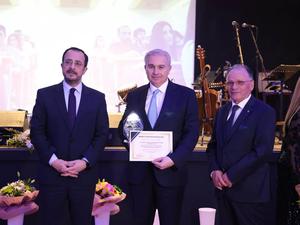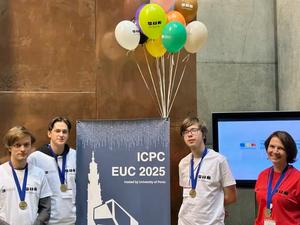Information
The BSc in International Relations and Security offers students the opportunity to acquire extensive and in-depth knowledge about a wide range of issues related with the development of international affairs and its security implications. Theory and practice of international relations and diplomacy, international organization and international law, security and strategic studies, as well as politics and economics, constitute the hard core of the Program’s content. The Programme aims at providing students a rigorous understanding of international relations and politics, and of conflict and security issues, globally and regionally across the world. It focusses particularly on recent and contemporary processes, trends and problems: examining efforts to respond to international and regional challenges in the spheres of policy and practice. The Programme combines in-depth academic training in key concepts, theories and case-studies, alongside a structured process of engagement with contemporary debates and experience.
Graduates of the Programme are expected to have a thorough understanding of international political, security and economic issues, which will enable them to pursuit careers in the diplomatic corps, in international organizations, in NGOs, as well as in both the public and the private sector as policy and security advisors.
Program
SEMESTER 1
- Introduction to International Relations (6 ECTS)
- Diplomatic History, 1815-1945 (6 ECTS)
- Research Methodology in International Relations (6 ECTS)
- Political Science (6 ECTS)
- Political Economy (6 ECTS)
SEMESTER 2
- International Relations Theories (6 ECTS)
- Security Studies: Conceptual Approaches, Contemporary and Emerging Issues (6 ECTS)
- The World since 1945 (6 ECTS)
- Introduction to Modern Diplomacy (6 ECTS)
- Macroeconomics (6 ECTS)
SEMESTER 3
- Geopolitics and Geo-economics in the Eastern Mediterrane (6 ECTS)
- Security Diplomacy (6 ECTS)
- International Political Economy (6 ECTS)
- The EU as a Global Actor (6 ECTS)
- Public International Law (6 ECTS)
SEMESTER 4
- Economic Diplomacy (6 ECTS)
- Strategic Studies (6 ECTS)
- Political Economy of National Security (6 ECTS)
- Terrorism, Asymmetric Threats and International Security (6 ECTS)
- International Economic Law (6 ECTS)
SEMESTER 5
- Economic Sustainability and Security (6 ECTS)
- Risk Analysis and Forecasting (6 ECTS)
- Conflict Resolution (6 ECTS)
- International Organizations (6 ECTS)
- Political Psychology (Elective) (6 ECTS)
- Foreign Policy in the 21st Century (Elective) (6 ECTS)
SEMESTER 6
- China as a Global Actor (6 ECTS)
- Energy, Security and Foreign Policy (6 ECTS)
- Environmental Sustainability and Security (6 ECTS)
- EU Neighborhood Policy (6 ECTS)
- Foreign Policy Analysis (Elective) (6 ECTS)
- Peacebuilding (Elective) (6 ECTS)
SEMESTER 7
- Political Economy of Energy (6 ECTS)
- European Security and Defense (6 ECTS)
- Risk Management (6 ECTS)
- Security in the Eastern Mediterranean (6 ECTS)
- International Development Cooperation (Elective) (6 ECTS)
- Practical Diplomacy (Elective) (6 ECTS)
- Human Security (Elective) (6 ECTS)
SEMESTER 8
- Nuclear Weapons and International Security (6 ECTS)
- Global Governance and Security (6 ECTS)
- Security in the Middle East (6 ECTS)
- Cyber Security (6 ECTS)
- Migration, International Relations and Security (Elective) (6 ECTS)
- Project Management (Elective) (6 ECTS)
- Placement (Elective) (6 ECTS)
News

Neapolis University Pafos Awarded for Higher …

Neapolis University Pafos Establishes Jean Monnet …

Neapolis University Pafos and TechIsland renew …







